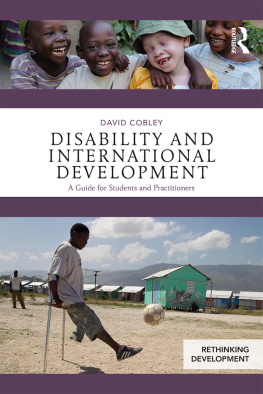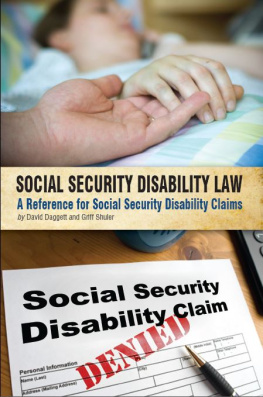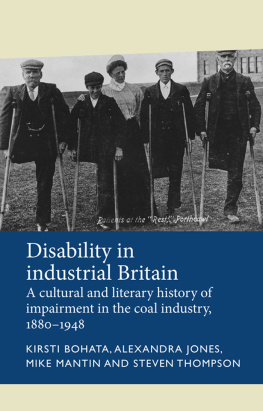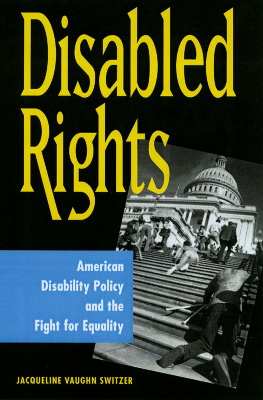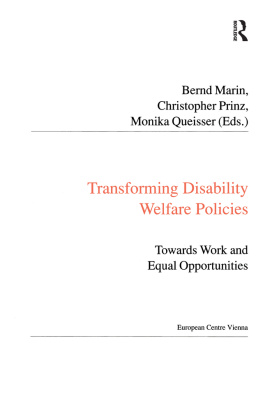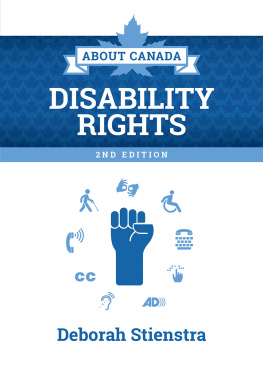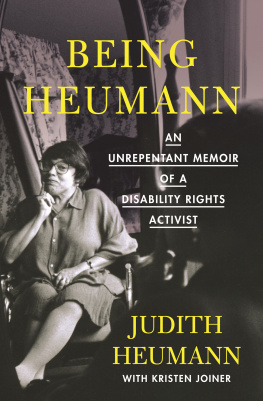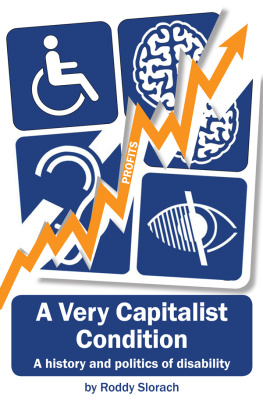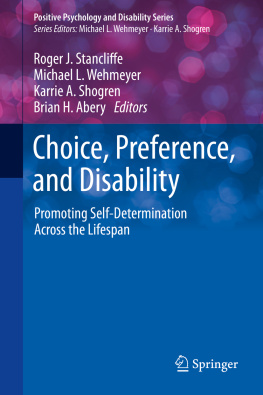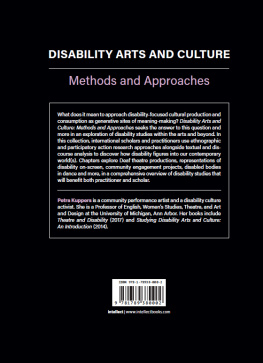
p.i
Disability and International Development
Despite growing evidence of a close and complex relationship between disability and poverty, development policy, planning and programming have often failed to take full account of the concerns of disabled people. However, following the 2006 UN Convention on the Rights of Persons with Disabilities and the post-2015 Sustainable Development Agenda, which promises to leave no one behind, there have been increasing calls from governments and development agencies for disability to be mainstreamed into all development planning. Disability and International Development provides a comprehensive overview of key themes in the field of disability and development, including issues around identity, poverty, disability rights, education, health, livelihoods, disaster recovery and approaches to researching disability.
The book engages with relevant theory and draws on existing literature in the field, as well as the authors own research and teaching experience, to explore key issues using a range of examples taken from around the world. Written in an accessible and engaging style to suit both students and practitioners, the book also includes a wide range of reflection exercises, discussion questions and further reading suggestions, making it the perfect introduction to disability and international development.
David Cobley is a Teaching Fellow at the International Development Department, University of Birmingham, UK.
p.ii
Rethinking Development
Rethinking Development offers accessible and thought-provoking overviews of contemporary topics in international development and aid. Providing original empirical and analytical insights, the books in this series push thinking in new directions by challenging current conceptualizations and developing new ones.
This is a dynamic and inspiring series for all those engaged with todays debates surrounding development issues, whether they be students, scholars, policy makers or practitioners internationally. These interdisciplinary books provide an invaluable resource for discussion in advanced undergraduate and postgraduate courses in development studies as well as in anthropology, economics, politics, geography, media studies and sociology.
Celebrity Humanitarianism and North-South Relations
Politics, Place and Power
Edited by Lisa-Ann Richey
Education, Learning and the Transformation of Development
Edited by Amy Skinner, Matt Baillie Smith, Eleanor Brown and Tobias Troll
Learning and Volunteering Abroad for Development
Unpacking Host Organisation and Volunteer Rationales
Rebecca Tiessen
Communicating Development with Communities
Linje Manyozo
Learning and Volunteering Abroad for Development
Emerging Economies and Development
Jan Nederveen Pieterse
Disability and International Development
A Guide for Students and Practitioners
David Cobley
p.iii
Disability and International
Development
A Guide for Students and Practitioners
David Cobley

p.iv
First published 2018
by Routledge
2 Park Square, Milton Park, Abingdon, Oxon OX14 4RN
and by Routledge
711 Third Avenue, New York, NY 10017
Routledge is an imprint of the Taylor & Francis Group, an informa business
2018 David Cobley
The right of David Cobley to be identified as author of this work has been asserted by him in accordance with sections 77 and 78 of the Copyright, Designs and Patents Act 1988.
All rights reserved. No part of this book may be reprinted or reproduced or utilised in any form or by any electronic, mechanical, or other means, now known or hereafter invented, including photocopying and recording, or in any information storage or retrieval system, without permission in writing from the publishers.
Trademark notice : Product or corporate names may be trademarks or registered trademarks, and are used only for identification and explanation without intent to infringe.
British Library Cataloguing-in-Publication Data
A catalogue record for this book is available from the British Library
Library of Congress Cataloging-in-Publication Data
A catalog record for this book has been requested.
ISBN: 978-1-138-63190-8 (hbk)
ISBN: 978-1-138-63191-5 (pbk)
ISBN: 978-1-315-20855-8 (ebk)
Typeset in Sabon LT Std
by Swales & Willis Ltd, Exeter, Devon, UK
p.v
In memory of my father, Francis Cobley, who encouraged me to study
p.vi
Disability and International Development is a major contribution towards making the human rights of persons with disabilities, especially the right to be included in international cooperation, a reality. Cobley has provided a work that provides both a critical reading of disability and development theory and is immediately applicable in the concrete work of policymaking and program implementation.
Stephen Meyers, Assistant Professor, Department of Law, Society and Justice/Jackson School of International Studies, University of Washington, USA
David Cobley has written an excellent introductory textbook on disability and international development, that provides mandatory reading for all students studying development studies and disability studies. It positively combines a very good academic grounding in this ever-expanding field with excellent case studies that illustrate the practicalities of living with a disability in developing countries.
Dr Raymond Lang, Senior Research Fellow, Leonard Cheshire Disability and Inclusive Development Centre, University College London, UK
This book provides a great tool to generate interdisciplinary dialogue regarding the relevance of disability across sectors for inclusive, sustainable development. For all students, academics and researchers, the book tackles terminology and theories that inform approaches to inclusive policies and programmes. It addresses the complexity of service provision across sectors, which demonstrates the multiple transitions experienced by persons with disabilities and their families.
Prof. Theresa Lorenzo, Programme Convenor for Disability Studies Doctoral Programme, Department of Health and Rehabilitation Sciences, Faculty of Health Sciences, University of Cape Town, South Africa
p.x
Figures
Tables
Boxes
p.xi
Case studies
p.xii
Disability has not been a high-profile issue in international development. But things are changing. Whereas it was not mentioned in the Millennium Development Goals, it is specifically mentioned in the Sustainable Development Goals, for example Goal 4 on inclusive and equitable education, Goal 8 on sustained, inclusive and sustainable economic growth, Goal 10 on reduction of inequality, Goal 11 on inclusive settlements and accessible transport and Goal 17 on data and monitoring. At the time of writing, 174 countries have ratified the Convention on the Rights of Persons with Disabilities, which sets out everything that needs to be done to promote, protect and ensure the rights and freedoms of all persons with disabilities.
This shift has largely been down to disabled people themselves. Not just in the developed world, but also across the Global South, disability rights movements have campaigned for access, inclusion and human rights. In my previous work for the World Health Organization, I was very struck by how effectively the International Disability Alliance mobilised the representative networks of self-organised groups, and how they worked together for the greater good of their community. This growth of human rights-based organisations, under the banner of nothing about us, without us, has also had impact on traditional NGOs working in this area. The voice of disabled people has been heard louder than ever.
Next page
